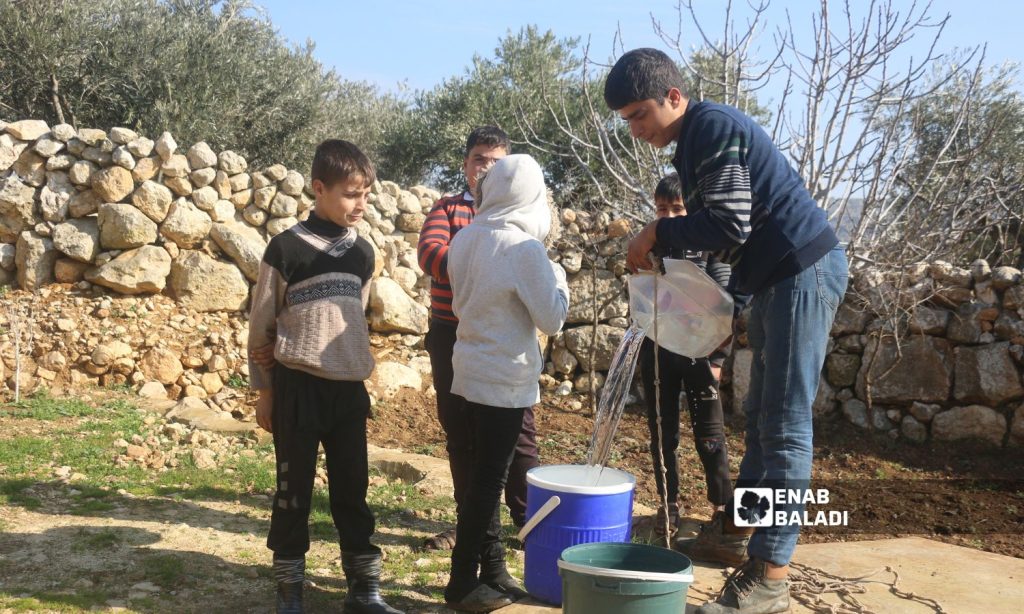Enab Baladi – Idlib countryside
Roman wells in the village of Sardin, in the northern countryside of Idlib, continue to be vulnerable to sewage water contamination, transforming many of them from a large water resource into a source of diseases, bad odors, and epidemics resulting from such contamination.
These wells, which are among the most prominent ancient monuments, are in need of rehabilitation and special care after they became a source of danger, whether due to pollution or causing the death of several people after falling into them.
There are many wells in the village, which is located about 50 kilometers from the center of the city of Idlib towards the north, 3 kilometers from the city of Qurqanya, and 14 kilometers from the city of Harem.
Wastewater-contaminated
The head of the Sardin village council, Ahmad Abdel-Ghani, told Enab Baladi that there are 360 Roman wells in the village, all spread in an area called al-Khirba. Most of these wells have disappeared, and some of them are still being used by the people until now.
Abdel-Ghani explained that the most prominent drawbacks of these wells are that they are adopted by some residents as sources of drinking water supply, although they are not sterile and vulnerable to contamination by the wastewater network of the city of Qurqanya, which passes nearby the said wells.
As stated by Abdel-Ghani, these wells are used in agriculture. Farmers can be provided with irrigation equipment, and this water can be supplied to irrigate some crops, and agriculture is transformed from rain-fed to irrigated, but it is also contaminated and needs to be treated.
A Roman well in the village of Sardin in the northern countryside of Idlib – January 22, 2023 (Enab Baladi / Iyad Abdul Jawad)
Hazard to people
Sardin wells are a hazard, as they have led to death incidents as a result of falling into them, the most recent of which was on July 21, 2022, when three children died, and a fourth was injured by falling into a 10-meter deep stone well.
At the time, Enab Baladi’s correspondent in Idlib quoted a resident of Sardin as saying that the mouth of one of the wells collapsed while four children were extracting water to water their livestock; the well’s mouth plunged them deep into the well.
The Syria Civil Defense (SCD) arrived at the scene after the loss of the children. They were taken to a hospital, but three of them died.
The head of the Sardin Farmers Association, Hassan al-Taher, said that the wells were previously suitable for drinking and agriculture, but they are no longer so because of the passage of sewage water from the city of Qurqanya near them, pointing out that some people have rehabilitated a number of them to use their water in agriculture and watering livestock.
Al-Taher explained to Enab Baladi that farmers abandoned some wells because of their inability to extract water due to the high cost of fuel, adding that the implementation of the project of a treatment plant for the nearby sewage line makes the impact of wells positive by providing potable water for farming and livestock watering.
Providing farmers with well water increases agricultural production by converting crops from rain-fed to irrigated and ensures that village families are self-sufficient in terms of securing vegetables in a manner that meets their needs.
According to other testimonies obtained by Enab Baladi from the villagers, attempts to rehabilitate some wells and treat their water remain primitive and inadequate, but they use them under the pressure of need.

